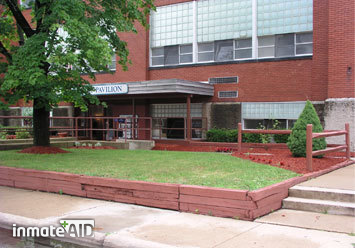Thank you for trying AMP!
You got lucky! We have no ad to show to you!
Connect with an Inmate
Alle Kiski Pavilion Reentry
Reentry & Treatment Facility
Alle Kiski Pavilion Reentry is for Reentry & Treatment Facility offenders have not been sentenced yet and are detained here until their case is heard.
All prisons and jails have Security or Custody levels depending on the inmate’s classification, sentence, and criminal history. Please review the rules and regulations for Reentry facility.
The phone carrier is Global Tel Link (GTL) - ConnectNetwork, to see their rates and best-calling plans for your inmate to call you.
If you are unsure of your inmate's location, you can search and locate your inmate by typing in their last name, first name or first initial, and/or the offender ID number to get their accurate information immediately Registered Offenders
You can support your loved ones at Alle Kiski Pavilion Reentry on InmateAid, if you have any immediate questions contact the facility directly at 724-339-8400.
The Alle Kiski Pavilion Reentry located at 1704 Fourth Ave Arnold, PA, focuses on successful offender reintegration into society, crucial for effective crime control. With high recidivism rates, evidence-based practices tailor programs for medium to high-risk individuals, reducing repeat offenses. Reentry and Treatment Centers offer structured environments and various programs aiding rehabilitation and community reconnection efforts. Collaborating with the Westmoreland Sheriff's Department, the Pennsylvania Department of Corrections, and sometimes the US Marshal Service/Federal Bureau of Prisons, comprehensive reentry services prioritize education, substance abuse treatment, and workforce development. Facilities assist officers in monitoring compliance and serve as alternatives to pretrial detention, considering cost-effectiveness and reducing overcrowding. Emphasizing individual needs, family support, and community integration, the center aims for holistic support, empowering successful reintegration.
Contracting Agency: Pennsylvania Department of Corrections, Pennsylvania Board of Probation and Parole; Capacity: 104 adult males
Alle Kiski Pavilion has been in operation since 1990. Residents are referred by the Pennsylvania Department of Corrections and the Pennsylvania Board of Probation and Parole. The majority of Alle Kiski residents are eligible for work release programs and are actively engaged in community service. Alle Kiski Pavilion is a residential reentry center that provides an opportunity for individuals to reside in a highly structured and accountable treatment environment while learning job skills and working in the community. GEO Reentry Services’ residential programs deliver temporary housing, monitoring, and transitional services for adult male and female participants nationwide. Alle Kiski Pavilion provides services seven days a week offering structure and flexibility to meet participant risks and needs and agency goals.
Programs and services currently offered at Alle Kiski Pavilion include,12-step programs, bible study, church service, Fresh Start program, job readiness program, Introduction to Arnold group, work release, education & vocational programs, violence prevention, transitional issues, domestic violence, drug education program, smoking cessation, fatherhood skills, life skills, film series, addictive recovery groups, and community service.
- Alle Kiski Pavilions' goal is to provide a healthy, drug free, safe and secure environment within, which we will provide treatment and education services that focus on changing addictive and criminal behaviors.
- Alle Kiski Pavilion provides numerous hours of community service to the local area on a yearly basis.
- The facility offers the following programs: Violence Prevention Booster, Domestic Violence Group, Smoking Cessation, Narcotics Anonymous, Alcoholics Anonymous, Vocational/Life skills Class, Fatherhood Classes, Addiction Recovery Groups, Bible Study and Church Service.
- Additionally, the facility offers a Drug Education Program, which is an educational-based program that focuses on providing the individual with information to help lead residents to the road of recovery.
- Alle Kiski Pavilion also provides numerous hours of community service to the local area every year.
- Alle Kiski Pavilion is accredited by the American Correctional Association (ACA) and scored a perfect 100% on all mandatory and non-mandatory standards during its last accreditation.
FACILITY DESCRIPTION: The center is a brick building with three floors and a basement. There is a full kitchen and dining room, a gym area and a free laundry room for residents. The Alle Kiski Pavilion is located near buses and transportation in Westmoreland County, Pennsylvania, 30 miles northeast of Pittsburgh.









